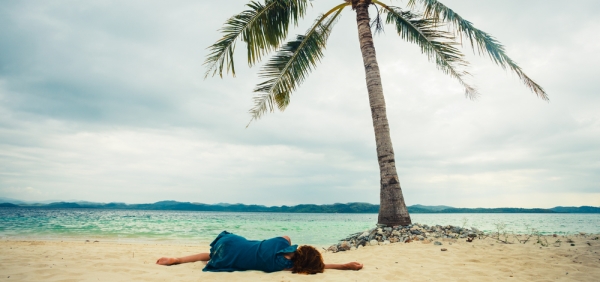Aussies love to travel and our adventurous spirit and carefree nature can often get us into trouble. We’ll try anything and go anywhere, but that can often be bad for our health – especially in these five countries.
Bali belly and bug bites
We’ve all heard of the infamous Bali belly and many of you may even know of someone or have fallen foul of it yourself. Bali is a tourist’s dream, but also the top spot for tummy troubles. It’s amazing how easy it is to pick up Bali belly yet difficult to get rid of. So steer clear of tap water, stick to bottled water, keep your mouth closed when you’re in the shower, skip the salads and uncooked or undercooked foods and say no to ice cubes.
Many insect-borne diseases can also be found in Bali, including dengue fever and malaria, so load up on insect repellent and cover up as much as possible. You’d be wise to sleep under a mosquito net at night too.
Thailand typhoid
Tropical Thailand is not only famous for its beaches, coastal resorts and temples, it also a hotbed for fungal infections. So always wear thongs or beach shoes when in the shower, communal areas and pools and try to shower after swimming. If you do happen start scratching, head to a pharmacy for topical treatments or stronger medicine.
Thailand is also known for typhoid, hepatitis, leptospirosis, tuberculosis, measles and mumps. Before you even get to Thailand you should ensure you have the necessary vaccinations or you could find yourself with more than foot fungus!
Filipino flu
Rainy season in the Philippines is prime time for influenza. And while catching the flu at home may be a bad enough experience, imagine having it in the humid climes of Southeast Asia. The less-than-first-rate medical system is also cause for concern when it comes to catching Filipino flu. So, make sure you’ve had the right vaccines before you go. Or, once you’re there, steer clear of coughing, sneezing people between July to December – especially October and November – which is peak flu season. If you do come down with a case of flu, you could seek a Hilot practitioner, as they have high rates of success when dealing with colds and flu.
Fiji fever
The beautiful blue lagoons and palm tree beaches of Fiji are ideal for a relaxing getaway, but, as with Bali, this tropical paradise is also a haven for insect-borne disease such as dengue fever and malaria. Ensure you take every precaution to prevent being bitten, or stay away during the wetter months of December and January. If you do develop flu-like symptoms or fever, head to a doctor, as early intervention is key to staving off further spread of a virus.
Spanish stomach bugs
Home to sangria, flamenco music, bullfighting and paella, Spain is also the destination where food poisoning is most prevalent. Yep, recent surveys found that Spain has the world’s highest rates of food poisoning, so take care when you’re there chowing down on churros. If you’re keen to avoid an upset stomach, you might wish to steer clear of shellfish and check out the food reviews online, by using apps such as AroundMe, Foursquare and Yelp. Or you can ask the locals where they eat – if you’re nice and polite they’ll rarely point you in the wrong direction.
So, take care out there. The quickest way to ruin your holiday is to get sick, especially when it can be avoided with a few precautions.
Do you have any tips for preventing sickness while on holiday? Do you know of any destinations where people are more likely to fall ill?
Related articles:
What if you get sick overseas?
Seven secrets to avoiding sickness
Seasickness remedies explained

